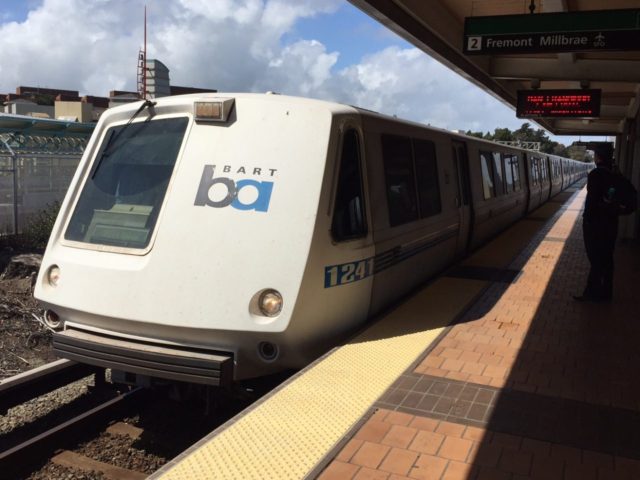Two advocacy groups and two individuals with disabilities filed a lawsuit in federal court in San Francisco on Wednesday alleging that BART has discriminated against people with disabilities by failing to maintain the transportation agency’s urine and feces-covered elevators.
“I encounter human waste in BART elevators several times a week — so frequently that it has become a predictable part of my commute,” Ian Smith, one of the plaintiffs in the civil rights lawsuit, who uses a wheelchair to move around, told the San Francisco Chronicle. “My hope is that this lawsuit will finally get BART to address the needs of the disability community.”
Two nonprofit law firms filed the lawsuit, the Disability Rights Advocates and Legal Aid at Work, on behalf of advocacy groups Senior and Disability Action and the Independent Living Resource Center of San Francisco, and disabled civilians Smith and Pi Ra.
Disability rights advocate Rebecca Williford told KTVU Fox 2 that “200,000 people throughout the Bay Area with mobility disabilities are affected by this. And that’s why we had to file a class action lawsuit in order to get relief.”
However, she said the clients filing the suit are not seeking personal compensation.
Our clients and the attorneys are only seeking injunctive and declaratory relief. And that means we are not seeking money for the clients. WE are not seeking money for the clients. We are in this to fix the BART system and make it more accessible. BART has a lot of barriers that it needs to fix, but it can get better. So we are looking for regularly maintained elevators, paths of travel that are made more accessible, and just a regular, reliable plan for maintaining all the accessible features at BART.
BART is hardly the vision of reliable transportation it was when it first opened its train doors to the public in 1972. The system has become increasingly dilapidated since the 1990’s and is in dire need of updates, including new rail cars and a and maintenance center, in addition to rail replacements. In 2015, BART experienced a broken rail, six-hour slowdown, and a power outage, in one day.
There is some hope in the Golden State’s cautious $2.6 billion effort to replace hundreds of older public transportation cars with new ones over the next five years.
Up to $900 million from the $2.6 billion effort will go towards an overhaul of BART’s train control system, which will include an additional third door to make entering and exiting the car easier, and wheelchair spaces for disabled patrons.
Follow Adelle Nazarian on Twitter and Periscope @AdelleNaz

COMMENTS
Please let us know if you're having issues with commenting.